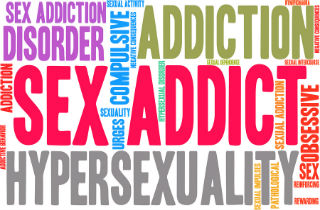Sex addiction not in the DSM
Doctors cannot seem to agree about the medical definition of sex addiction, also known as compulsive sexual behavior, hypersexuality, or nymphomania. In fact, sex addition IS NOT INCLUDED in the Diagnostic and Statistical Manual of Mental Disorders (DSM), a classification system for mental health practitioners published by the American Psychiatry Association. The DSM is considered the go-to reference when diagnosing psychiatric issues. However, the most recent version of this classification system, the DSM-4, does not yet recognize sex addition as diagnose-able condition. And the next version of the handbook, the DSM-5, is due for publication in May of 2013 and only includes sex addiction in the appendix. Why is this?
Apparently, there is not enough scientific evidence for the existence of sex addiction, but the mention in the appendix is meant to stimulate research. Psychiatrists insist that there has to be an empirical basis to modify anything in the DSM. Furthermore, the APA’s working group of consultants who will guide the DSM-5 question whether it’s even possible or desirable to create diagnostic criteria for sex issues.
Characteristics of sex addiction
Nonetheless, sex addiction is a painful and very real dis-ease for many. In fact, preoccupation with sex can cause progressively worse consequences for individuals, families, and friends. But what does it mean to act out sexually? Check out the thorough questionnaire on sex addiction from Sex Addicts Anonymous, or consider these questions:
1. Are you unable to stop sexual behavior when you want to?
2. Do you keep your sexual behavior secret?
3. Do you use sexual thoughts, feelings or behaviors to numb yourself from difficult feelings or to avoid responsibilities?
4. Is your sexual behavior lacking intimacy and/or respect for yourself and others?
5. Do sexual thoughts, feelings or behaviors have negative consequences in your life?
Take a sex addict test
To learn more about sexual addiction and to take a self-report survey, see the Sex Addicts Anonymous checklist.









Related Posts